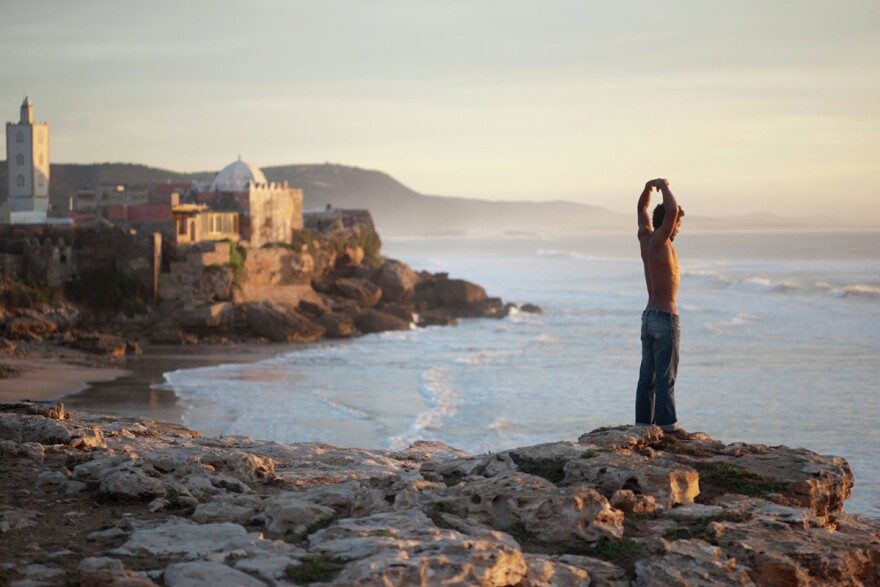Film festivals add up to more than a list of movies. If it works right, you find yourself in a critical mass of film, conversation, and the sheer intensity of doing nothing else for a few days. Here’s some of what came through at the Telluride and Toronto film festivals.
The Film Menu Is Quite Large
There’s more film worth watching than you might think. What actually comes to theaters is a sliver of what’s available.
For instance, a fascinating picture at Toronto called Atlantic was made in Morocco by a Dutch director, Jan-Willem van Ewijk, an aerospace engineer turned filmmaker. The movie is about a young Moroccan man who tries to get to Europe by wind surfing, and as story, Atlantic has the odor of a European projecting his own exotic notions on Moroccans, plus, it was sponsored partly by a company that manufactures wind surfing equipment. But Atlantic is also gorgeous – big, wide shots of the young man as a dot on the ocean – and the movie shows Moroccan life as it has not been shown on film. The picture goes into the homes of the families of fishermen, where they cook and eat together. There are beautiful, touching scenes of village gatherings with people dancing and making music.
I can’t imagine that Atlantic will ever play in a local theater. Maybe it will play at film festivals willing to break out of their usual patterns, and maybe at festivals that show films about wind surfing, or outdoor experiences and things like that. Maybe eventually it will show up on the Internet.
Sample The Unexpected
On the subject of films that will probably not be distributed in this country, I spoke with an old friend who runs a chain of art houses. He’s been doing it a long time, and he’s noticed a disturbing and growing pattern – more and more people don’t want to take chances. They don’t want to be surprised; they want to see what someone else says is OK to see, something safe and dependable.
For the most part, for the audience, a sense of adventure has gone out of going to the movies. It’s like fast-food restaurants. The food may not be thrilling, but people know what it will be, and that trumps the possibility of a revelation. Lots of films – like Atlantic – are flawed, and after it goes through the grind of Internet commentary, it will be dead in the water. But maybe 200 people came out of the screening in Toronto glad that they took a chance and saw something they’d not seen before. It didn’t have to be flawless, or predictably mediocre.
Size Matters
The third thing I realized at the two festivals is that seeing a film intended to be big on a screen of decent size is the only way to do it. It’s obvious, but it helps to be reminded. When you watch a film like Francis Coppola’s Apocalypse Now on a television, even a big one, you might watch the film, but you can’t see it. You’ll know what happens in the story, but you won’t experience the film as film.
Apocalypse Now opens on a wide expanse of Vietnamese jungle. An American warplane drops napalm, which sets off a line of fire completely across the width of the screen, all to the sound of Jim Morrison and The Doors singing “This Is the End.” It makes your jaw drop and you are instantly immersed in Coppola’s vision of the hell that was the Vietnam War. Watching this on a TV, you can get up to grab a bag of chips.
http://vimeo.com/6159478
It’s the same with Mike Leigh’s new film Mr. Turner, about the British painter J.M.W. Turner, which showed at both Telluride and Toronto. On a good movie screen, Mr. Turner opens up the drama of a gnarly, grubby man and his revolutionary sense of color. On a television, the film will be domesticated into nice and tame.
François Truffaut once said, “It’s a beautiful day. Let’s go to the movies.”
That's a good idea.







